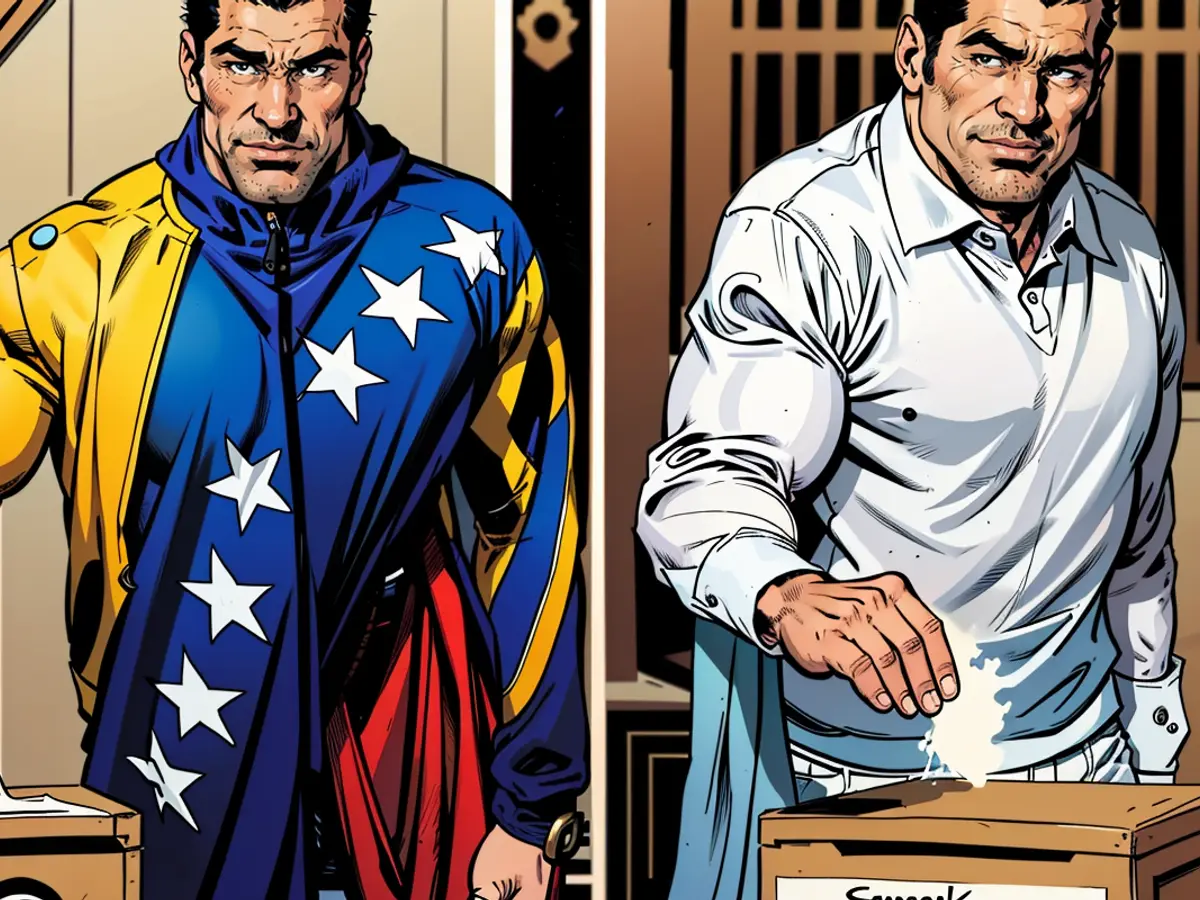Tension rises on election day in Venezuela
Maduro campaigns for a third six-year term. The 61-year-old self-proclaimed Marxist is unpopular among voters due to the economic crisis in the country. The polls predict a win for the 74-year-old opposition politician González Urrutia. However, government opponents and experts fear that Maduro would not acknowledge a victory by his challenger.
In the morning, Maduro stated at his voting station in the capital Caracas: "I will recognize the electoral board and the official results, and I will ensure they are respected." Simultaneously, he called on all other presidential candidates to publicly acknowledge the results published by the electoral council.
The head of the electoral council CNE, Elvis Amoroso, labeled the opposition as "enemies of Venezuela" and stated that their candidate "rejects the constitution."
Maduro's power base in Venezuela relies on the military and the police. Before the voting, he repeatedly stated that he would not relinquish power in case of a loss. In the past week, he threatened a "bloodbath" for the possibility of a defeat. A few days later, on July 20, he declared that only he could "guarantee peace and stability for Venezuela." "The future of Venezuela for the next 50 years will be decided on July 28, between a peaceful Venezuela or one of violence," he said.
"We are ready to defend every single vote," said challenger González Urrutia on Sunday after casting his ballot in Caracas. "We trust our security forces to respect the people's decision."
According to most polls, Maduro can only count on slightly more than 30% of the votes, while the former diplomat González Urrutia is estimated to have between 50 and 70% of the votes. Other presidential candidates are considered unlikely to win.
The polling stations were expected to close at 18:00 hours, but they might remain open for longer due to long queues. Preliminary results were anticipated in the early hours of Monday.
"I have been here since 4:30 am and hope that it will be a successful day and Edmundo González Urrutia triumphs," said the 54-year-old lawyer Giselda Barroso. She hoped for "democracy in Venezuela." The 83-year-old María de Rivero, however, identified herself as a proud Maduro supporter. With him, she believed, everything would improve.
In the oil-rich state of Zulia, a student reported that the powers-that-be were buying votes: Maduro supporters received food aid after casting their votes.
US Secretary of State Antony Blinken urged all sides to respect the "democratic process" during the election. "The Venezuelan people deserve a free and fair election that truly reflects their will," said Blinken. The international community would closely monitor the situation.
Maduro's election in 2018 was not recognized by most Western countries, resulting in sanctions against Venezuela. The President is accused of suppressing the opposition in the country. The opposition politician María Corina Machado was denied a presidential candidacy due to alleged corruption. However, Maduro's government and the opposition agreed last year to ensure a free and fair election in 2024.
Many Venezuelans hold the government accountable for the economic crisis and hyperinflation in oil-rich Venezuela. The country was once the largest oil producer in South America: in 2008, 3.5 million barrels of crude oil were produced daily.
Due to mismanagement, the decline in oil prices, and US sanctions, the production volume dropped to below 400,000 barrels by 2020, but rose again to approximately one million barrels in the past month. Venezuela's Gross Domestic Product shrank by 80% within ten years, and hyperinflation rendered the Bolivar currency virtually worthless.
Approximately one in four Venezuelans have fled their homeland due to the economic and political crisis. Many have emigrated to other Latin American countries, while some have dared the perilous journey to the USA. Others have tried to establish a foothold in Europe and Asia.
- Election Day in Venezuela fell on July 28, with Maduro campaigning for a third term.
- Despite the economic crisis, polls predicted a win for opposition politician González Urrutia on Sunday.
- Tension was high leading up to the election, with Maduro threatening a "bloodbath" if he lost.
- Tony Blinken, the US Secretary of State, urged all sides to respect the democratic process during the election.
- On Election Day, Edmundo González Urrutia called for the peaceful recognition of the election results, while Maduro's supporters rallied behind him.
- In Caracas, police and military maintained a strong presence, adding to the sense of tension and unease.
- The future of Venezuela hung in the balance as voters headed to the polls, with opposition politicians like María Corina Machado watching closely from afar.







